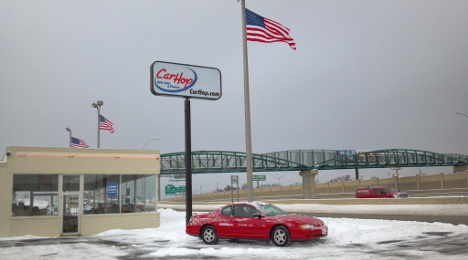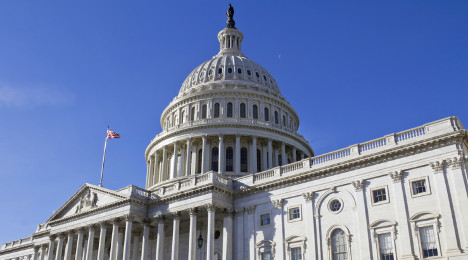On Jan. 21, the Consumer Financial Protection Bureau released a law enforcement settlement that should cause dealers to take notice. The settlement, involving Herbies Auto Sales, a single-lot BHPH dealership in Colorado, is noteworthy for its attack on pricing and sales practices that are common throughout the BHPH industry. Herbies did not admit to any of the CFPB’s allegations, but the allegations are nonetheless surprising.
The CFPB’s lawsuit claimed that Herbies violated the Truth in Lending Act and Regulation Z by not including in the APR and finance charge calculations, the cost of a warranty and a payment reminder device that it required credit customers, but not cash customers, to purchase. This allegation, by itself, is unremarkable. Compliance attorneys have long advised dealers that charges imposed only on credit customers may be deemed “hidden finance charges” under TILA.
But the bureau did not stop there. It also asserted that Herbies negotiated the sales price of vehicles it sold for cash but refused to negotiate prices in credit sales. According to the bureau, while that differential practice was not itself unlawful, Herbies should have included in the finance charge and APR the difference between what Herbies would have sold a particular vehicle for in a cash purchase (following negotiations), and what it actually sold the vehicle for in a credit sale. So, for example, if Herbie’s sold a car on credit for $5,000, it should have figured out how much lower the price would have been if the car had been sold for cash and added the difference to the finance charge. But no one — the bureau, Herbies, nor anyone else (perhaps a soothsayer) — could have predicted what Herbies would have negotiated in a hypothetical cash transaction for a specific vehicle. Not knowing the hypothetical negotiated cash sales price makes disclosing this “hidden finance charge” on TILA disclosures impossible. The bureau nonetheless alleged it as a violation.
The bureau also took aim at Herbies’ sales and pricing practices. As alleged, Herbies did not display a sales price on any of its vehicles. For credit sales, a customer qualified for a vehicle based on his or her needs and ability to pay. Specifically, Herbies identified a monthly, bi-weekly, or weekly payment amount that a customer agreed he or she could pay and allowed the customer to choose among vehicles that fit that payment amount. This practice, common in the BHPH industry, comports with how many used-car purchasers shop — based on the periodic payment amount rather than the total price. Herbies did disclose the full purchase price prior to closing a transaction, along with other disclosures required under federal and state law. At that point, any customer had the opportunity to decline the transaction and walk away. In the CFPB’s view, however, providing the purchase price only at the end of this process is an “abusive” practice, because consumers could not adequately protect their own interests by declining the transaction. Going forward, Herbies’ agreement with the Bureau requires it to post a purchase price on all automobiles available for sale. And Herbies’ must disclose several items of information to customers, some of which go beyond what is required by TILA/Reg Z, when making credit sales:
• The vehicle’s make, model, year and VIN;
• The duration of the financing contract;
• The timing, number, and dollar amount of periodic payments;
• The total number of payments to pay-off;
• The purchase price and finance charge;
• A list of any add-on products to be included in the financing; and
• The APR, including amounts for mandatory add-on products.
These disclosures must be made before or at the same time as Herbie’s “offering a specific automobile to the consumer or in any way soliciting a commitment from the consumer to purchase ….” The disclosures must be in writing and signed by the customer.
Many (ourselves included) will take issue with the CFPB’s targeting a small BHPH dealer for practices that are widespread throughout the industry. This is especially true in that those practices were not intended to, and in fact did not, harm consumers. Nonetheless, dealers should take away the following “lessons learned” from the CFPB’s enforcement action:
• Mixing cash and credit sales comes with a risk for BHPH dealers.
The bureau’s case hinged on the fact that Herbies made both cash and credit sales. What the settlement does not say, but what we know was the case, is that Herbies made very few cash sales at all, and even then those sales were for lower-quality, older inventory. But it was enough for the bureau to take action. If a dealer wants to offer both cash and credit sales, it would be wise to include the cost of any add-on products that are required only for credit sales in the finance charge and APR (in the process being mindful of state law finance charge caps and their applicability); and eliminate any policy that allows price negotiations for cash sales but not credit sales (or somehow come up with a way of measuring the impact of those negotiations on the relative prices of cash and credit sales).
• Bundling warranties will help your customers but it may hurt your compliance
Herbies provided its customers with a warranty in order to help them maintain the collateral and ensure that they had access to transportation. Its customers were overwhelmingly satisfied with the warranty program. Yet, because Herbies made a handful of cash sales for which the warranty was not required, the bureau viewed the warranty as a hidden finance charge.
• Pricing deals solely to the payment amount is a hazardous practice.
The CFPB’s concerns with Herbies’ sales process essentially distill to one fact: Herbies did not disclose a final sales price until consummation, when the customer was signing the paperwork. Many BHPH dealers do not post sales prices because they negotiate deals according to payment amount. Going forward, dealers should consider posting prices on vehicles and advising customers early on of the total price and other terms, even if the customers only care about the amount of the monthly payment. Although the specific disclosure requirements to which Herbie’s is now subject do not necessarily apply to all dealers, they provide a roadmap for what the bureau expects from BHPH dealers.
• No actor is too small.
Herbies, by any measure, was not a large-scale participant in the BHPH market. Those thinking they are too small and insignificant to draw attention from the CFPB should think again.
• If you ignore these lessons, you may pay a steep price.
Under its agreement with the CFPB, Herbies is required to pay a total of $700,000 to past purchasers, in the form of credits to those with active accounts and cash to those who have paid off their financing. In addition, the agreement assesses a $100,000 civil monetary penalty, payment of which is suspended due to Herbies’ financial condition. The CFPB routinely requires companies accused of wrongdoing to pay consumer redress and/or penalties. Investing in your compliance management system now will reap benefits down the road.
In the final analysis, we think the CFPB’s settlement with Herbies indicates that the bureau has problems with a business model that many BHPH dealers have followed for many years. While the CFPB has targeted BHPH practices in the past, i.e., the DriveTime and CarHop cases, those matters focused on arcane credit reporting issues rather than the business model itself. Herbie’s undoubtedly will not be the last bureau BHPH enforcement target.
Stay tuned for more developments on this front.
Joel Winston ([email protected]) and Allen Denson ([email protected]) are partners in the Washington, D.C. office of Hudson Cook, LLP. Based on an article from Spot Delivery. Copyright CounselorLibrary.com 2016, all rights reserved. Single publication rights only, to BHPH Report (Jan. 16).
For the second time in two months, the Consumer Financial Protection Bureau took out an enforcement action in the buy-here, pay-here industry.
On Thursday, the enforcement came against Herbies Auto Sales, an operator in Greeley, Colo., for what the bureau deemed to be abusive financing schemes, hiding auto finance charges and misleading consumers.
The CFPB said Herbies will pay $700,000 in restitution to harmed consumers, with a suspended civil penalty of $100,000.
“Buying a car is often one of the most important purchases a consumer makes, so the experience needs to be fair and above-board,” said CFPB director Richard Cordray.
“But concealing finance charges and the real cost of credit, as Herbies did here, is unlawful and unacceptable,” continued Cordray, whose agency penalized CarHop just before the holidays.
Y King S Corp., which does business as Herbies Auto Sales, operates a dealer that both sells the vehicle and originates the contract without selling that deal to a third party. From at least 2012 through May 2014, the CFPB determined the BHPH operation offered financing to about 1,000 people each year.
The bureau contended that Herbies unlawfully advertised a misleadingly low 9.99 percent annual percentage rate without disclosing a required warranty, a payment reminder device and other credit costs as finance charges. What officials described as a “ruse” helped Herbies convince consumers that they would get the 9.99 percent APR instead of the much higher rate actually charged.
“Also, Herbies engaged in abusive practices,” officials said.
The CFPB indicated Herbies violated the Truth in Lending Act and the Dodd-Frank Wall Street Reform and Consumer Financial Protection Act. Specifically, the bureau said the BHPH operator:
• Hid finance charges and advertised a far lower APR than consumers received: The CFPB insisted Herbies “lied” to consumers about finance charges and APRs in marketing materials, including on showroom window displays, and in Truth-in-Lending Act disclosures. What officials determined to be hidden finance charges included $1,650 for a required repair warranty and $100 for a required GPS payment reminder device.
• Hid finance charges that stemmed from a refusal to negotiate car prices: The bureau found that Herbies refused to negotiate prices with credit customers, but did negotiate with cash customers. Officials indicated the resulting finance charge should have been included in the disclosed cost of credit.
• Used abusive practices: The CFPB asserted Herbies’ financing scheme “lured” consumers with “misleading” advertising and then “kept them in the dark” about the true cost of financing the vehicles they were buying. “This took advantage of consumers’ inability to protect their interests in selecting or using Herbies’ financing, among other things,” officials said.
More details of the enforcement action
Under the Consumer Financial Protection Act, the CFPB is authorized to take action against institutions engaged in unfair, deceptive or abusive acts or practices, or that otherwise violate federal consumer financial laws. Under the consent order, Herbies is required to:
• Provide $700,000 in redress to harmed consumers: The CFPB indicated Herbies must provide $700,000 in restitution for consumers who financed cars with Herbies after Jan. 1, 2012, except those whose accounts were charged off due to default. Herbies must submit a timeline to the bureau for making restitution to consumers. Herbies is also subject to a civil penalty of $100,000, which is suspended as long as redress is paid.
• Stop deceiving consumers during financing process: Herbies must not misrepresent interest rates, finance charges, or amounts financed, or any other fact material to consumers concerning the financing of any motor vehicle.
• Post automobile prices: Herbies must clearly and prominently post the purchase price on all vehicle for sale when offering financing.
• Provide certain financing information in advance: Herbies must give consumers certain information about the financing offer, including the actual APR, price of the vehicle, and all finance charges, and get a signed acknowledgment from consumers that they received the required information before or at the time financing is offered.
Buy-here, pay-here operators who report their customers’ successful payments to a credit bureau should take note. Allegedly not completing the process correctly according to the Consumer Financial Protection Bureau cost BHPH chain CarHop more than $6 million in penalties.
On Thursday, the CFPB said it’s taking action against CarHop, one of the country’s biggest buy-here, pay-here dealership networks, and its related finance company, Universal Acceptance Corp., for providing what the regulator deemed to be “damaging, inaccurate” consumer information to credit reporting companies.
Bureau officials indicated CarHop and its RFC also failed to provide accurate, positive credit information that it promised consumers it would supply to the credit reporting companies.
The CFPB’s investigation found that the companies inaccurately reported information for more than 84,000 accounts on a widespread and systemic basis. The CFPB is ordering the companies to cease their illegal activities and pay a $6,465,000 civil penalty.
In a statement on the company’s website, officials said, “We have agreed to this settlement, under which we have not admitted to the CFPB’s allegations, to move beyond the distraction of the investigation started in May of 2012.
“Although the CFPB has made a number of allegations, it did not find that any consumer is entitled to any damages,” CarHop continued.
“CarHop/UAC strives to comply with all applicable laws and regulations and provide exemplary service to our customers,” the BHPH operator went on to say. “Over the last several years and prior to the initiation of the CFPB investigation, we had taken and have continued to take steps to positively enhance our customers’ experience.
“We look forward to an ongoing relationship with the CFPB and hope to continue our constructive dialogue to improve our customer service and compliance practices in the years ahead,” officials added.
Minnesota-based CarHop, also known as Interstate Auto Group, is one of the largest BHPH dealers in the nation. CarHop has approximately 50 retail locations in approximately 15 states. CarHop sells vehicles primarily to customers with nonexistent or poor credit histories in need of subprime or deep subprime credit. It markets itself as a way for these consumers to rebuild or build-up good credit by saying it will provide positive payment histories to the credit reporting companies. Consumers who buy from CarHop frequently do so because they suffer from poor credit scores and other financial challenges.
Universal Acceptance, on behalf of CarHop, furnishes consumer account information to all three major consumer reporting companies on a monthly basis.
The CFPB said found that the company reported information that it knew or had reasonable cause to believe was inaccurate. The bureau indicated the company “inaccurately” furnished information for more than 84,000 accounts from about January 2009 until September 2013.
“With CarHop, consumers may not have even known about the damage to their credit profiles resulting from the erroneous reporting unless and until they checked their credit reports,” officials said.
Almost all the information the companies inaccurately furnished to the credit reporting companies could potentially harm customers. The CFPB contends the negative information could lower a consumer’s credit score, hamper their ability to obtain other credit and hurt their job prospects.
The CFPB also found that CarHop and Universal Acceptance violated the Fair Credit Reporting Act and the Consumer Financial Protection Act. Specifically, the companies:
1. Deceived consumers into believing they could build up good credit with CarHop
As part of its marketing and sales practices, the CFPB pointed out CarHop represented in writing to consumers that it reports “good credit” to the credit reporting companies. CarHop also emphasized to consumers its part in helping them build and maintain good credit.
“This appealed to consumers trying to build up their credit profiles with a history of on-time payments,” bureau officials said. “But the company, through Universal Acceptance Corporation, failed to furnish certain positive information, including information that would support ‘good credit,’ for tens of thousands of consumers.”
2. Provided inaccurate repossession information
The bureau stated CarHop customers had the right to voluntarily return their vehicles within 72 hours of purchase for a full refund without any penalties or additional obligations. But for some customers who returned their vehicles under this policy, Universal Acceptance did not accurately report to the credit reporting companies what really happened.
“Instead, the company inaccurately reported on numerous occasions that the cars had been repossessed or that the consumer still owed money,” officials said.
3. Incorrectly reported previous customers as still owing money
For consumers 72 hours past purchase, the bureau acknowledged CarHop often resolved disputes by having the customer return the vehicle. It then issued documentation to the customer saying they no longer had any financial obligations and had settled their account.
“But for hundreds of customers, in the months or even years that followed after they returned their vehicles, Universal Acceptance Corporation inaccurately furnished, on a monthly basis, information that said that the customer still had an outstanding balance,” bureau officials said.
“Sometimes, the company inaccurately reported the amount past due in continuously increasing amounts,” they added.
4. Failed to have reasonable written policies and procedures to ensure the accuracy of consumers’ credit information
The CFPB found Universal Acceptance had no written policies and procedures regarding the accuracy and integrity of the consumer information it furnished until early August 2013.
“The policies it adopted that month were not reasonable or appropriate to the nature, size, complexity, and scope of the company’s activities,” officials said.
More details of enforcement action
Pursuant to the Dodd-Frank Act, the CFPB has the authority to take action against institutions or individuals engaging in unfair, deceptive, or abusive acts or practices or that otherwise violate federal consumer financial laws. Under the terms of the CFPB orders released today, CarHop and Universal Acceptance must:
• Cease misrepresenting that they will report “good credit”: The companies must not misrepresent to customers that they will report “good credit” or other positive information to the credit reporting companies.
• Correct credit reporting information: If Universal Acceptance furnished information to a credit reporting company that it knew or had reasonable cause to believe was inaccurate, it must notify the credit reporting company of the inaccuracy. When it does so, it must either provide corrected information or request that the company delete the wrong information from the consumer’s file if accurate information is not available.
• Provide credit reports to harmed consumers: CarHop and Universal Acceptance must, for consumers who had incorrect information furnished about their accounts, arrange for consumers to obtain free credit reports from the credit reporting companies that received the inaccurate information.
• Implement an audit program to ensure laws are followed: CarHop and Universal Acceptance must implement a process for auditing information that Universal Acceptance furnishes to the credit reporting companies on a monthly basis. This process must include monitoring and evaluating the disputes the companies receive. The audit is designed to ensure the integrity and accuracy of the information.
• Pay a $6,465,000 civil penalty: CarHop and Universal Acceptance will pay a $6,465,000 penalty to the CFPB’s Civil Penalty Fund.
“Many consumers went to CarHop because they needed transportation and wanted to build up a good record of paying their bills,” CFPB director Richard Cordray said. “But CarHop and Universal Acceptance Corporation thwarted those expectations by inaccurately furnishing negative credit information.
“The CFPB will not stand for companies whose sloppy actions jeopardize consumers’ credit,” Cordray added.
Transparency. Education. Information. Repeat.
Unless you’ve been living under a rock, it’s pretty clear that the Consumer Financial Protection Bureau expects consumers to receive these things from their financial service providers. Earlier this month, the CFPB once again demonstrated this when publishing a report on its “Know Before you Owe” electronic closing (eClosing) project that it recently conducted in the mortgage industry.
What’s this got to do with auto finance and the buy-here, pay-here industry? Read on.
The project, which took place over a four-month period, involved a combination of technology companies, real estate professionals and 3,000 consumers, of which 1,200 completed surveys about their experience in mortgage closings. The results indicate that “those consumers who closed their mortgage using an electronic platform are generally better off on measures of understanding, efficiency, and feeling empowered than borrowers who used just paper forms.”
The CFPB focused on three areas: consumer understanding, process efficiency and feeling of consumer empowerment. In each area, the study found that eClosings improved the customer experience.
“While technology alone will not address all consumer concerns in the closing process, our study showed that eClosings do offer the potential to make the process less complex,” CFPB director Richard Cordray said. “The CFPB believes that the eClosing process has the potential to give consumers more time to review closing documents while also providing them with educational tools that can help them navigate the closing process more successfully”, concluded the report.
It’s obvious that the CFPB will continue to expand upon the adoption of eClosings in the mortgage industry. In fact, the “Know Before You Owe” mortgage disclosure rule, which goes into effect in October, will require that consumers be provided with two new informational forms well before closing.
This presents the question of whether auto finance will be faced with a similar initiative, since director Cordray has stated that auto loans and leases are among the most complex and significant transactions in a consumer’s life.
The worlds of auto finance and mortgage lending are very different.
For one, the underwriting requirements of mortgage lenders prevent immediate closings. Also, it is virtually impossible for a consumer to read at closing the voluminous number of the closing documents a consumer is required to sign, thus the bureau’s mandate for delivery of information prior to closing.
However, they are both similar in that they represent significant financial commitments by the consumer. Therefore, we can expect that the CFPB will apply pressure for both industries to treat its consumers similarly and look for the best ways to educate and inform them so that they can make responsible choices.
While electronic contracting has been used in auto finance for several years and creates an efficient process, it doesn’t address the other two areas that the CFPB focused on in the mortgage study — consumer understanding and empowerment — which are natural by-products of transparency, education and information.
While a more efficient process is nice, dealers need to realize that the CFPB really wants the industry to take steps to provide more and better information to its customers.
Fortunately, the auto finance industry already has tools at its disposal. Menu selling, which standardizes the after-market product offerings of a dealer, has become more widespread in recent years. Also, many dealers have their customers view videos that provide valuable information about products and services to the consumer.
SecureClose — disclaimer here is that I helped to develop it — is a product that provides consumers with a standardized presentation of the terms and conditions of the contracts, allows them to navigate through the documents at their own pace, and actually records the consumer’s participation in the closing. Reynolds and Reynolds DocuPad and Dealertrack’s eContracting product offer similar educational benefits.
The goal of these and any similar products are to educate the consumer and, therefore, empower them, which creates a better customer experience and, hopefully, a better customer.
A dealer not looking to use these tools still has to be proactive and search out opportunities to inform and educate its customers and build a more transparent process. Study the closing process and find ways to include more information so your customers are educated.
Are there product brochures or materials that can increase a customer’s knowledge? If so, don’t just leave them out around the dealership; instead, make them a part of the presentation.
If multiple after-market products are offered at your dealership, create your own menu and be sure to include standardized pricing.
Take advantage of the FTC pamphlets that educate consumers on car buying and financing. Every dealer should offer them to its customers.
Transparency. Education. Information. If you’re doing business like it’s 2010 then you aren’t adopting industry best practices and you aren’t accomplishing these goals. Change, improve and aim to be better than the rest.
Steve Levine is the chief legal and compliance officer of SecureClose. He can be reached at (817) 875-0621 or [email protected].
The Consumer Financial Protection Bureau issuance of the larger participant rule last month came as little surprise to much of the industry. But SecureClose chief legal officer Steve Levine said many buy-here, pay-here dealers and other finance companies may not realize how far the rule will reach — likely impacting more than just large participants.
Levine reiterated the official language extends the CFPB’s supervision to any nonbank auto finance company that makes, acquires or refinances 10,000 or more loans or leases per year.
“But that’s only the technical threshold. In reality, trickle-down pressure from capital sources, floor plan providers and credit reporting agencies — all of whom are accountable for the actions of dealers they do business with — will place even the smallest dealers and lenders under the microscope,” Levine said.
“Not to mention plaintiff’s attorneys, who seek out new cases based on the CFPB’s focus areas, as well as local and state regulators who regularly pursue businesses below the 10,000-loan-or-lease threshold,” he continued.
Levine asserted that every BHPH dealer and finance company should assess whether they provide consumers with truly understandable explanations as to what they are agreeing.
“Car buyers are often confused about the terms of their deal, and this misunderstanding — combined with inadequate disclosures or proof of disclosures — leads to unnecessary conflict and often legal action,” he said.
“We see time and time again that the best-informed customers end up being the best-performing customers,” Levine added.
Levine said SecureClose offers a solution that fully satisfies these disclosure and documentation needs from the perspective of regulators, lawyers and buyers. SecureClose technology automates the closing process by using a computerized avatar to verbally walk each customer through his or her deal terms, while sharing legally compliant, easy-to-understand commentary along the way.
“It’s like having a lawyer close every deal — and having a cloud-based video record to prove it,” Levine said.
Levine went on to say traditional scripts or videotapes of closings — while sometimes helpful — are not nearly enough in today’s environment, due to the high price of human error.
“Dealers must ensure that customers receive the right message, every time — and that closings are not compromised because an employee is tired, untrained or wants to close the deal at any cost,” Levine said.
“I’ve written countless closing scripts, and with SecureClose, for the first time I’m truly confident that my legal work is actually provided correctly to the consumer,” he continued.
Levine recommended that all dealers and finance companies respond to the CFPB’s latest rule by asking themselves 10 questions. He categorized them by the bureau’s areas of concern:
Fairly marketing and disclosing financing terms
1. Do our advertising and marketing materials accurately disclose the true deal terms?
2. Do we provide simple checklists that explain the auto financing terms in a customer-friendly way?
Providing accurate information to credit bureaus
3. Do we have a documented process that matches the complexity of our business?
4. Do we provide credit reporting training and testing at least twice per year to employees tasked with this function, and do we document their personnel files accordingly?
5. Do we conduct adequate investigations of every single dispute, and can we demonstrate the process?
Treating consumers fairly when collecting debts
6. Do our customers know all the payment options available to them?
7. Are our invoices, collection letters and call strategies synchronized so customers receive a consistent message instead of a confusing one?
8. Are we taking advantage of online payments, Interactive Voice Response (IVR) and text messaging, all of which leverage technology and avoid confrontation with the customer?
Lending fairly
9. Do we practice menu selling so no customer can claim different treatment?
10. Do we provide written explanations of each add-on product’s key benefits?
Levine and other SecureClose executives — including chief executive officer Allen Dobbins, formerly of AutoStar Solutions, and founder and chief vision officer Ace Christian, owner of Rock Solid Auto in Mesa, Ariz. — will be on hand to discuss the full impact of the CFPB’s announcement at the Texas Independent Automobile Dealers Association annual conference in San Antonio on Aug. 9-12, and Innovate: The Independent Dealer Industry Conference in Fort Worth, Texas, on Sept. 20-23.
Mike Marak is the president of M&M Auto Sales in Hiawatha, Iowa, boasting more than three decades of buy-here, pay-here experience.
Marak chose to spend three days in Dallas last week for the Best Practices Conference hosted by the National Alliance of Buy-Here, Pay-Here Dealers. Judging by what he shared with NABD afterward, it seems to have been time and money well spent.
“Everything was great,” Marak said. “I did not hear one bad speaker. I learned something in every session, and I have been in the business 31 years.”
NABD highlighted that BHPH operators from throughout United States attended the three-day event, which wrapped up on Jan. 20. The dual-track program focused on best operating practices and compliance for BHPH.
And Marak wasn’t the only dealer who thought spending time away from the store to come and gather information on compliance, collections and underwriting was a prudent move.
“NABD is the leading voice and authority in our industry. There is no close second,” said Al Gardiner, owner of St. Mary’s Motors in Lexington Park, Md. “This show and other NABD contributions are an absolute must for dealers whose livelihood depends on the BHPH industry.”
Jack Bridges, chief operating officer of Credit Now Auto Co. and Atlantic Acceptance Corp., offered a similar assessment.
“Having attended virtually every one of (NABD’s) national conferences over the years, I came expecting to gather a wealth of information and that is exactly what the show delivered and so much more that it’s simply amazing,” Bridges said.
“(NABD’s) conferences are, simply stated, a must for anyone that is serious about learning, improving and growing their BHPH business,” he continued. “In fact, I would say a lot of Credit Now Auto Company’s success over these many years is due in a large part to what we have learned at (NABD's) shows, then brought home and put into practice.”
NABD founder and president Ken Shilson indicated the educational sessions featured 11 dual-track workshops on Sunday afternoon and Monday.
Compliance topics included legal and regulatory updates, handling regulatory investigations, compliance systems and an IRS update. The best operating practices sessions focused on areas such as the Internet, integrated technology solutions, add-ons, maximizing recoveries, performance benchmarks, inventory and reconditioning and capital alternatives.
On Tuesday morning, the workshop sessions combined into a single track, featuring both best operating and best collections panels and a presentation on the new AutoTrader.com Buy-Here, Pay-Here Center.
The best practices sessions featured many of the nation’s most successful operators and industry experts. The compliance program included leading attorneys Tom Hudson, Terry O’Loughlin, Patty Covington, Eric Johnson, David Silverman, Myles Stevenson, Gerald Sachs and other chief compliance officers.
“All the sessions were interactive so attendees could ask questions and get answers to their questions on how to become compliant, and ways to improve their profitability and cash flow, and regain market share,” Shilson said.
“These sessions helped attendees take a proactive approach toward making 2015 a better year,” he continued. “In the highly competitive environment of today, training like this has never been more important. Attendees left with many new ways to increase market share and to avoid legal and regulatory mistakes that could cost them millions.”
Joyce Caudill, vice president of Richwood Acceptance in Walton, Ky., insisted that Shilson and NABD “have their fingers on the pulse of the BHPH industry.”
Caudill emphasized how discussions about the Consumer Financial Protection Bureau taking a great interest in the BHPH space are some of the main takeaways she had from the event.
“As our industry continues to come under close scrutiny and tighter regulation, real-time information on what the CFPB and other regulators are doing, planning on doing and honing in on, is more important than ever,” Caudill said. “The legal experts on the panel were top notch, not afraid to answer the hard questions and get us all on the right path to compliance.
“The technology experts have listened and are treated our business as the real player it is for even more credit challenged customers than ever,” she continued. “Putting all the information in a friendly, exciting format, at one place makes dealer education easier than ever. I tell everyone I know in the business that these conferences are a ‘must do,’ except our competition.”
And dealers weren’t the only attendees who gained valuable experiences out of NABD’s latest event offering. Mike Downey is the vice president of sales and marketing at Auto Master Systems.
“It is obvious that NABD has a great understanding of the needs of today’s dealers by dedicating a conference to the important topics surrounding operation and compliance,” Downey said. “The quality of content offered, and their selection of highly qualified speakers makes attending this conference an easy decision for BHPH operators who want to improve their business.
“We’re proud to be a part of it and look forward to the next one,” Downey went on to say.
And Tax Refund Services and TaxMax founder Bill Neylan added, “The NABD show is a must for all buy-here, pay-here dealers, as well as any vendor in the industry who are looking to better their business.”
NABD announced it will hold its 17th annual National Conference on May 19 through May 21 at the Wynn Hotel Resort and Casino in Las Vegas.
“The Wynn is the finest, five-star, Las Vegas hotel and casino. NABD offers unprecedented room discounts with no resort fees while supplies last,” Shilson said.
In addition, NABD plans to hold a BHPH Boot Camp on Aug. 22 and 23 in Monroe, N.C.
For more information on these upcoming events, visit www.bhphinfo.com or call (832) 767-4759.
Congress empowered the Consumer Financial Protection Bureau to supervise buy-here, pay-here dealers when it passed the Dodd-Frank Wall Street Reform and Consumer Protection Act. Since its inception, the CFPB has not specifically targeted a BHPH dealer — until now, that is.
In November, the CFPB announced a consent order against DriveTime Automotive Group, one of the largest BHPH dealerships in the country, for allegedly harassing consumers with debt collection calls and providing inaccurate credit information to credit reporting agencies. As part of the consent order, DriveTime agreed to pay an $8 million civil money penalty, end the debt collection tactics categorized by the CFPB as unfair, fix its credit reporting practices and arrange for affected consumers to obtain free credit reports.
According to the CFPB, at least 45 percent of DriveTime’s auto installment contracts were delinquent at any given time. When DriveTime consumers fell behind on their installment payments, at least one of DriveTime’s 290 collection employees in two domestic call centers and 80 contractors in Barbados would call them.
Indeed, these employees and contractors placed tens of thousands of collection calls each weekday. At the end of 2013, DriveTime had approximately 69,000 installment contracts that were past due and that these employees or contractors would have been attempting to collect.
Dodd-Frank establishes that companies’ practices can be unfair if consumers cannot reasonably avoid being harmed. The CFPB determined that several of DriveTime’s debt collection practices were unfair to consumers.
Abusive Calling Practices
For example, DriveTime often called borrowers at work, a practice DriveTime management encouraged. Several consumers requested that DriveTime not call them at work, but DriveTime called anyway. One consumer was unfairly called 30 times at work after her do-not-call request.
DriveTime also required consumers to provide the names and phone numbers of at least four references when they applied for financing, a common practice in subprime credit. When consumers fell behind on their payments, Drive- Time called these references.
Many borrowers and references requested that DriveTime no longer make these calls, but DriveTime continued to call. Some references complained that DriveTime called them for months aft er they asked the company to stop.
Finally, DriveTime frequently used third-party databases to find new phone numbers for consumers who fell behind in their payments, a practice known as skip-tracing. Unfortunately, these databases were often wrong.
Upon receiving DriveTime’s calls, many third parties told DriveTime employees or contractors that they had the wrong number and requested that DriveTime stop calling them. Despite such requests, DriveTime continued to call.
In some cases, DriveTime called these wrong numbers for more than a year before stopping.
More Wrongdoing
Unfortunately, DriveTime’s alleged unfair acts did not stop at collection practices. It also allegedly erred in how it reported delinquent information to consumer reporting agencies.
In a number of cases, DriveTime reported inaccurate timing of repossessions and dates of first delinquency. This made it appear on consumers’ credit reports that DriveTime repossessed consumers’ vehicles more recently than the actual date of repossession.
DriveTime also mishandled consumers’ complaints about this inaccurate information. In several instances, consumers disputed the same account information several times without correction.
In other cases, DriveTime falsely told the consumers in writing that it corrected the information. The CFPB specifically found that DriveTime failed to establish and implement reasonable written policies and procedures regarding the accuracy and integrity of the information it furnished to credit reporting agencies.
Ending Result
To settle a potential enforcement action with the CFPB, DriveTime agreed to stop communicating with consumers at their workplaces if consumers have requested that DriveTime not call them there, or if DriveTime otherwise knows that the consumers’ employers prohibit communications to their workplaces.
Additionally, DriveTime cannot call a particular phone number related to an account if any person requested that DriveTime stop calling that number.
DriveTime also agreed to provide a clear and conspicuous notice to existing customers as to how they can limit the times of day that Drive- Time will call them.
For all new customers, DriveTime will provide this notice as part of a written welcome kit. Drive- Time will also provide this notice on the welcome call and, if applicable, at the time of the first collection call on the account.
In addition to agreeing to report only accurate information, DriveTime agreed that if it furnished inaccurate information to a credit reporting agency, it will provide corrected information to the agency or request that the agency delete the wrong information from the consumer’s file.
For consumers about whom DriveTime furnished inaccurate credit information, DriveTime agreed to give them a notice that explains how to obtain a free credit report from each of the nationwide consumer reporting agencies.
Finally, DriveTime agreed to implement a process for auditing information it furnishes to the credit reporting agencies on a monthly basis and monitoring the disputes it receives.
Industry Ramifications
So, if you operate a BHPH dealership, what are your lessons from this consent order?
First, be very careful in how you collect on accounts. If a consumer tells you to stop calling, then stop calling. If you obtain references and a reference asks you to stop calling, stop immediately.
Keep track of these requests in your servicing software and collection call notes. Ensure that your policies and procedures are current.
If you don’t have a compliance management system in place, budget for one in 2015, in a manner that corresponds to the size of your operations.
And finally, if you do report information to the credit bureaus, ensure that the information is accurate.
Catherine Brennan is a partner in the Maryland office of Hudson Cook and can be reached at (410) 865-5405 or by email at [email protected].
AutoStar Solutions isn’t trying to dampen the Christmas spirit buy-here, pay-here operators might have, but chief legal officer Steve Levine warned dealers of what he described as a potential “Grinch" — regulators such as the Consumer Financial Protection Bureau, the Federal Trade Commission and state attorneys general.
Keeping with the mood of the season Levine shared what he called 12 Days of Dealership Compliance, a rundown of steps BHPH operators can take to keep regulators satisfied.
“The government crosshairs on auto dealers is not going away. In fact, it’s only intensifying,” Levine said. “For dealers big and small, the threat is real, and so is the learning curve.
“This 12-step checklist will give dealers the starting points they need to keep the big government Grinch at bay,” he continued.
• DAY 1: Document the pertinent facts. Protect your dealership from the start, when facts are fresh on your mind and you don’t have to rely on memory. Keep detailed notes about the transaction, negotiation process and customer. They may come in handy later.
• DAY 2: Keep a centralized compliance manual. Type out all your processes, procedures and other compliance-related documentation, then compile them in a large three-ring binder. If a regulator comes to visit, this book should be one of the first things you show him or her. It’s a clear sign that you understand the importance of compliance, and you’ll get big points for effort.
• DAY 3: Get to know your regulators. If you develop a positive relationship with your assigned regulators, you may be surprised at the courtesies they pay you – such as a heads-up phone call when they receive a complaint.
• DAY 4: Hire a specialized attorney. Just because you share a long history with your current attorney doesn’t mean he or she is the right person for automotive regulatory issues. Are car dealers his or her specialty, or just one of the many types of clients in his or her practice? Regulatory compliance is a highly detailed, ever-changing area of the auto industry. As a result, some lawyers who don’t fully understand the car business have unknowingly implicated their clients. Is that a risk you want to take? If you decide to switch, consider an attorney who is an active member of the National Association of Dealer Counsel.
• DAY 5: Reframe your view of complaints. In reality, complaints can be a gift. They may feel annoying, but many of the people who come to you first will complain to a regulator or lawyer if the matter isn’t resolved. In fact, 90 percent of state Attorney General investigations originate from complaints. So consider them a golden opportunity to fix the problem and prevent a regulator from ever hearing about it.
• DAY 6: Audit your deal jackets before turning them over. If you receive an auditor letter asking for a certain number of deal jackets in various categories, by all means, ask your attorney to hand-pick the ones without compliance issues. And only turn over what’s legally required. Miscellaneous handwritten notes or other extraneous documents can implicate you and cause further action unnecessarily.
• DAY 7: Implement progressive discipline for rogue employees. Never, ever turn a blind eye to employees who break compliance rules. If you don’t discipline (and document it), regulatory agencies will hold you accountable for your employees’ mistakes.
• DAY 8: Proactively right your wrongs. This is not the time to shove problems under the rug and hope no one notices. The minute you find a compliance issue, if you can fix it monetarily, do so. Then keep records of any refunds, and tell the regulator if he or she comes knocking.
• DAY 9: Get your advertising house in order. Non-compliant ads and direct mail pieces give regulators a foot in your door, after which they may start poking around in other areas. It’s best to read up on advertising compliance and consult an auto dealer attorney to avoid further trouble.
• DAY 10: Pass on your knowledge. All the understanding in the world about compliance issues means nothing if your staff doesn’t share that knowledge. Regulators will investigate whether you train your team to comply, or set policies just for show.
• DAY 11: Assume your regulator has little to no experience with dealerships. State Attorneys General, for example, oversee so many industries that most of their lawyers possess only a basic understanding of the auto world. It’s your job to help them understand how things work, and why.
• DAY 12: Be as nice as humanly possible. Some dealers take a risky approach with regulators … confrontation. It simply doesn’t work. The government possesses all authority and leverage in this situation. But they are people too, so behaving as kindly as you can muster will go a long way.
Operators can gain an in-depth compliance education by joining Levine and some of the most-respected automotive compliance experts in the country at the next Innovate Conference, coming next fall. Dealers can sign up to get conference updates, ticket information, a list of speakers, the full breakout schedule and more at www.myinnovate2015.com.
Ken Shilson, founder of the National Alliance of Buy-Here, Pay-Here Dealers, joined the leadership of the National Independent Automobile Dealers Association for its annual leadership meetings in Washington, D.C., to help champion positions important to BHPH operators.
Shilson left Capitol Hill with three related takeaways from those gatherings; a trio of points NABD is using to help sharpen the agenda for its next event — its Best Practices Conference on Jan. 18 through Jan. 20.
Shilson noted several members of Congress indicated that the “tax extender” provisions will likely be approved by both chambers before they recess this month. Shilson emphasized this development indicates that tax refunds should not be delayed significantly in 2015.
“I anticipate these tax refunds will begin around Feb. 1 provided that Congress acts as they indicated,” Shilson said. “The competition for these refunds has increased as subprime lenders, credit unions, and franchise dealers compete for BHPH customers. Operators must be very proactive in this tax season to recapture market share.”
Shilson insisted the Consumer Financial Protection Bureau and Department of Justice continues to closely monitor the BHPPH industry for deceptive advertising, alleged unfair and deceptive lending practices, data privacy, collection abuses and discrimination.
“Operators must avoid these problem areas in 2015 to be compliant,” Shilson said. “You can’t afford to make legal and regulatory mistakes if you want to succeed. Appointing a chief compliance/privacy officer to implement a compliance management system is the first step. Training dedication of resources must come next.”
In recent discussions with BHPH operators around the nation, Shilson mentioned that they acknowledged “the old ways” are just not working like they previously. He suspects the reasons stem from increased competition as well as economic and regulatory changes.
“You can’t expect to do the same things in 2015 and have better results,” Shilson said. “It is time to rethink your business model, implement technology, learn from your losses and get compliant.”
With that thinking in mind, the NABD is hosting a Best Practices Conference at the Hilton DFW Lakes Executive Conference Center in Dallas,
“This conference is designed to address the biggest challenges the subprime auto finance industry is facing today,” Shilson said. “The buy-here, pay-here operator is now facing stiff competition from finance companies, credit unions, and franchise dealers. Therefore, BHPH operators must find new ways to retain and regain their customers and increase market share during these highly competitive times.
“The old ways just aren’t working because the industry economics and customer behavior have been altered by all this competition for subprime customers,” he continued. “In addition, our industry is facing some new regulatory challenges from the CFPB, the Federal Trade Commission and state attorneys general. Legal and regulatory mistakes can prove very costly as evidenced by the most recent $8 million penalty assessed against a major BHPH operator.”
In response, NABD assembled outstanding experts, attorneys, operators, and former regulators who will provide tips, techniques and best practice ideas that will help operators navigate through these challenges in 2015.
“You can’t do the same things next year and expect to be more successful,” Shilson said.
NABD emphasized that operators must now be more proactive in their compliance efforts in order to avoid significant penalties and business disruption caused by increased regulatory scrutiny.
“However, the industry struggles with what to do and the expense associated with all these compliance requirements,” Shilson said. “At this conference we will explain what operators must do now and how they can comply cost effectively.
“We are not receiving much insight from Washington so we must seek input from former regulators who can share their knowledge,” he continued. “Operators who believe compliance is expensive will learn that non-compliance is much worse.”
NABD contends the timing of this event can allow operators to start the New Year by doing the “right things,” which can improve their results.
Shilson highlighted the DFW Lakes Executive Conference Center is a facility located near Dallas-Fort Worth International Airport, and ground transportation to and from the conference center is provided.
For attendees who wish to drive to the event, free parking is available.
NABD arranged significant discounts on rooms while supplies last. No resort fees are charged to guests and the property has a fitness center, indoor pool, and other amenities.
“This event is very affordable for all key personnel,” Shilson said.
The dual-track program will cover both operating and compliance best practices. Operators are encouraged to send at least two employees so they can attend both tracks.
“Unlike other trade shows, this educational conference is specifically designed for the BHPH industry so all the sessions will focus on relevant information,” Shilson said. “The sessions are interactive so individuals can take away answers to their specific questions.
An agenda and information on keynote speakers is available at www.bhphinfo.com.
The exhibit hall features all the latest products and services available to help increase profits and cash flow. Two receptions, a breakfast, and a luncheon are included and these are designed to facilitate networking with the experts, exhibitors, and other attendees.
“A very limited number of exhibit spots remain available,” Shilson said.
To secure space, exhibitors can call Keith Shilson at (832) 767-4759.
Significant early registration discounts are available for paid registrations received prior to Friday. Some discounted rooms remain available at the Hilton DFW Lakes, so attendees are urged to reserve now to receive the discount.
“Hoping next year will be better is not a prudent strategy,” Shilson said. “Operators are encouraged to ‘work smarter, not harder’ in 2015. This conference will get them pointed in the right direction.”
"Hard cases make bad law" is a maxim attributed to Oliver Wendell Holmes, an associate justice and acting chief justice of the U.S. Supreme Court at the turn of the last century. The maxim suggests that cases with extreme facts often prompt courts (and regulators) to stake out extreme legal positions in response.
On July 29, the Consumer Financial Protection Bureau and 13 state attorneys general announced a consent order that represents just such "bad law," and the case should be of great concern to the buy-here, pay-here auto retail industry.
The case is known as Rome Finance, and the facts are quite extreme.
According to the CFPB's press release and earlier investigations conducted by the New York attorney general, Rome was a group of finance companies and related retailers that targeted service members with “guaranteed credit” to purchase large-screen TVs, computers and gaming systems.
Allegedly, Rome's affiliated retail store employees would go to the local big box store, buy merchandise at retail, mark it up 225 percent to 325 percent and then sell it on credit to active duty service members and their families (at 10 percent to 20 percent APR). Credit was provided on an affiliate's open-end plan.
Stores allegedly refused returns of unopened merchandise, pursued aggressive and abusive collection tactics and even collected on debt for merchandise that actually had been returned. Finally, to add an ultimate insult, Rome used the military's own pay system to deduct payments directly from a service member's salary.
By the time the CFPB became involved, more than one state attorney general had succeeded in obtaining relief for service members; Rome's retail outlets had gone out of business; and the finance companies were in bankruptcy — but still trying to collect old debts.
Much of that collection was for the benefit of creditors of Rome. It was this collection — some of it flowing to the individual principals of Rome — that the latest consent order shut down, along with banning the principals of the company from ever engaging in the consumer finance business.
Most readers would agree that regulators should take action against Rome's scheme of targeting vulnerable service members, and the CFPB has a statutory mandate to protect that class of consumers. The CFPB does not, however, have the authority to regulate the retail price of goods and services. The legal principles the Bureau used to finally sack Rome are very close to claiming that authority.
Here is what section 20 of the consent order declares:
"The prices of the consumer goods disclosed in the financing agreements were inflated to hide the true cost of the credit provided. The inflated goods prices resulted in inaccurate finance charges and annual percentage rates in disclosures provided in Corporate Respondents' financing agreements, in violation of Regulation Z."
The consent order goes on to allege that the same practice was both deceptive and unfair, terms that have particular legal meaning under the Dodd-Frank Act and include the idea that a reasonable consumer could not reasonably avoid the harm caused by the practice.
Here's the rub. In order to find a hidden finance charge in a retail price, a regulator must necessarily have the evidence and the authority to declare what the actual reasonable retail price is.
There begins a slippery slope abandoned by most economies in the late 1980s in markets other than regulated public utilities. The CFPB's consent order does not explain facts to support its assertion that prices contained finance charges.
Indeed, most of the facts in this article come from press reports about earlier state enforcement actions. Nor does the CFPB explain how consumers were unable to go to the big box store and thus avoid the "deceptive" pricing. Just how are consumers in this Internet age deceived as to the going prices for new, mass market consumer goods?
What does all of this have to do with buy-here, pay-here? Like Rome, the buy-here, pay-here industry provides credit to credit-challenged consumers by offering goods at higher-than-Internet-market prices. One can fairly argue that a portion of the price of a BHPH vehicle is, in microeconomic terms, a hedge against the high defaults that occur as a result of the financial instability of the lives of nonprime consumers, and that it is a credit cost.
Microeconomics, however, is not coterminous with legal principles. Until Rome, a posted retail price was a "cash price" for Truth in Lending Act purposes, absent some other compelling facts. Regulators relied on a consumer's ability to go down the street for a better price (and they still do) if the price on a used car was too high. That may no longer be true, especially if other compelling facts are present to support a legal argument that some portion of the price is a hidden finance charge.
What might some of those facts be?
- If a BHPH dealer allows a consumer to walk on the lot and pay a discounted price (below the posted BHPH price) for a cash sale, then regulators will argue with some validity that they can determine the portion of the posted price that is a finance charge.
- If a BHPH dealer aggressively promotes "interest-free financing," when everyone knows that credit costs are loaded into the vehicle price, a regulator will have a colorable case that the marketing scheme is deceptive (although this is a harder case to prove).
- If a BHPH dealer grants credit to every customer, regardless of the customer's ability to pay, relying solely on the value of the collateral to support the business model, a regulator will have a distinct legal "unfairness" argument and will be tempted to step further down the slippery slope of declaring posted retail prices "deceptive."
When I speak at BHPH industry conventions, I highlight these practices as asking for trouble.
One other strategic factor is critical. Like most regulators, the CFPB will use technical violations (of TILA, for example) as leverage to push creditors into agreeing to more systemic changes in the way they operate a business.
BHPH dealers should use great care to assure that technical issues like TILA disclosures, adverse action notices and other "forms" issues are airtight.
Will the BHPH business model fall like Rome? The CFPB is charged with balancing consumer protection and access to credit. There is a reasonable argument that BHPH is unique in the high economic utility it provides to consumers for its high price.
A payday loan's economic utility may be quickly eroded when fees paid equal the cash provided in two months or less (which is a fair example for online payday). In contrast, a responsible BHPH dealer provides the consumer with transportation to work, a value that is many multiples of the (admittedly high) cost of the nonprime credit cost involved.
One can only hope that the CFPB sees this side of the microeconomic argument when using its hidden finance charge detector.
Rick Hackett is a partner in the Maine office of Hudson Cook. He can be reached at (207) 541-9556 or by email at [email protected].












